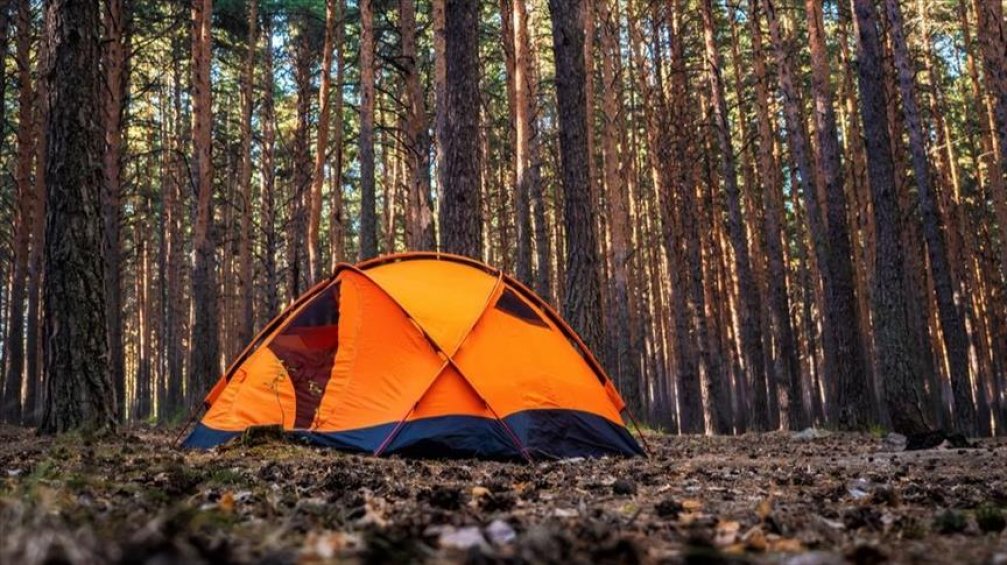
The Impact of 2020 on Tourism and the Future of Travel
The coronavirus epidemic we experienced closely affected many sectors and tourism was undoubtedly one of the most affected sectors. In many countries of the world, practices that encourage isolation and prevent the spread of the epidemic, such as travel bans, quarantine, working from home, have been implemented. Although travel mobility begins, entries to many countries can still change at the last minute. Our travels interact instantly with every updated information about coronavirus. In addition to all these, our new normals such as the PCR test, which has never been in our lives before and is now mandatory for travel, and the quarantine, which has a different duration, have also taken their place in our lives. So, what else changed in tourism in 2020, when all these changes and health are the priority? What awaits travelers, tourism professionals, and the travel industry in the next period?
The tourism industry experienced a difficult period in 2020. The data used by Tripadvisor between December 30, 2019, and March 15, 2020, in the article study compiled by the National Institutes of Health of the US National Library of Medicine confirms this. The results revealed that the tourism industry was easily affected by global crises. Accordingly, with the spread of news of the pandemic, the day that travelers decided to cancel or delay their travel was almost the same. The concerns of those who will travel have been the hallmark of travel and tourism for whatever purpose during the COVID-19 period and will continue to maintain this feature. Controlled travel, risk management, getting closer to being digital, and using technology will open a new page in travel policies.
Highlights of 2020: Glamping Camping, Boat, Villa, and Caravan
According to the data shared by Google, there was a significant increase in isolated holidays. The searches of "Villa" 101%, "bungalow" 42%, "chalet" and "vineyard house" 85%, "caravan" 71%, "boat rental" 64% increased compared to last year. Looking at the world in general, large caravan companies have reached record bookings with an increase of 650% during this period. Camping holidays, caravan holidays, glamping was the most preferred holiday format by those who want to be intertwined with nature in different countries as well as in Turkey. According to Airbnb, home-villa rentals in the domestic will continue to be a trend in 2021. Renting a boat started to spread from sea lovers to the general public. Renting a boat to go to the blues and magnificent bays or to go on family vacation has become one of the best holiday ideas. Apart from renting a boat either as a family or with a group of friends, it is also possible to have different experiences in the fun-oriented sailing concept boat holidays.
The tendency to Domestic Tourism and Nearby Places Increased
Although travels abroad have started again, those who will travel may be worried due to last-minute changes. Since each country has its own procedure, it will be a little more unusual to travel abroad as a tourist. PCR testing, quarantine practices, or the uncertainty that may be experienced may direct many travel lovers to domestic tourism. The pandemic period between the behavior of traveling in Turkey "to go to the nearest place" came to the fore. Especially the search for places to go near Istanbul was more popular than ever. While both easy-to-reach and economical locations such as Ayvalık, Şile, Çatalca, Ağva were in demand, there was a trend towards isolated accommodation alternatives in these regions. To catch a chance to explore the different beauties of Turkey with other eyes will be among the trends of 2021. Preferring to experience different holiday experiences such as camping in domestic tourism, renting a caravan-boat-villa will make us discover little-known places in our country.
Contactless Technologies and Online Reservation Applications
While online applications provide convenience to travelers in many countries of the world, they once again showed their importance during the COVID-19 era. During the pandemic period when transportation and accommodation cancellations were experienced, cancellation and postponement processes created a big problem for travelers. It has become one of the dynamics of global travel to resolve such transactions, which are a material and moral weary process, with integrated services that can be contacted 24/7. Research shows that travelers who create global interactions expect technology to offer them a new experience and new discoveries. Travelers want to be able to discover activities in real-time and book the easy and fast way while traveling. This suggests that the use of online applications will increase more in 2021. Online booking applications that transform travels into a travel and experience plan that saves the hotel room, reduce costs with the right solutions to travel more, and inform about the risks that may occur before and during the trip, will become travelers' assistant.
Risk Management and Communication During The Travel Will Be Valuable
80% of global travelers expect a travel agent to contact them at least once before or during their trip. For tourism companies, 2021 will be a year when they will focus on risks and communication. Risk management, which will be the assurance of both company employees and companies, especially in business travels, will keep employees and companies safe with uninterrupted communication before and after travel, even during travel. Risk management, which can protect the psychological, economic, and physical belonging of the whole company and minimize the risk possibilities, will directly affect the processes such as transportation, accommodation, and transfer of business trips. This will make pre-planned travels more preferable.
Social Media Effect on Reservations
With social media increasingly affecting the community, travel industry players are working to provide a similar experience. Travel studies reveal that content sharing platforms affect travel decisions. Recent studies such as Global Digital and Adobe Consumer Content Survey show that consumers spend an average of 8 or more hours per day with digital content. Google's share, according to data while watching video online to get information about their travels in Turkey and 85% of users said 71% of users prefer the main source of YouTube.
Sustainable and Benefit-Oriented Travels Await Us
Sustainability has become a determining factor for individuals purchasing travel and accommodation, and travel companies have begun to adapt their vacation options to reflect this. From the reduction of plastic in hotels to the creation of sustainable focused holiday packages, consumers have begun to offer a wide range of options when it comes to eco-accommodation. According to a study by MMGY, one of the world's largest marketing experts in the travel industry, 60% of American travelers say climate change concerns will drive new routes in the next 5 to 10 years. The percentage of global travelers who want to play a role in reducing excessive tourism is 54%.
Solo Travel Trend in 2021
Solo travel, also known as travel alone, is a travel concept that has been the lifestyle of most travelers living in different countries of the world for many years. Solo travel, which intensified during the gap year period, during which students abroad take a break from education and employees to work, enabling the creation of special routes for many segments from travelers to business people. With the motivation of bloggers, phenomena, Youtubers and travel writers' solo travel experiences, the concept of solo travel influenced many segments.
Digital Nomad Visa and Telecommuting
Most office workers do not consider spending five days a week at work after the COVID-19 crisis is over. According to a survey conducted by the British Council for Offices, the pandemic can change their working patterns permanently, and in the future, white-collar workers may adopt a hybrid working model, partly working in the office and partly remotely. Some destinations, which were heavily affected by the lost tourism income, realized this situation and implemented efforts to open their doors to digital nomads. Destinations such as Antigua, Barbados Barbuda, Estonia, and Georgia offer employees who want to benefit from a digital nomad visa to work in the country.




